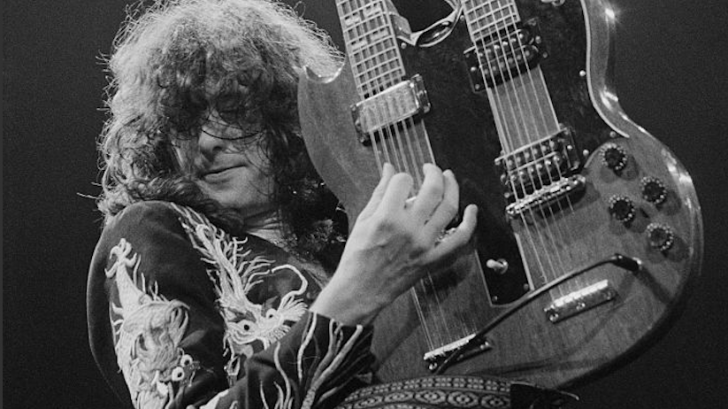Neural Networks
In 2012, researchers at the Max Planck Institute for Human Development in Berlin, Germany grouped 16 pairs of musicians to settle an endless argument- are guitarists the most important band member? Although that question has yet to be answered, the researchers did conclude their study with some cold hard facts about the brains of real guitarists.
The reason for grouping the participants in pairs was for the sake of comparing brain activity while they played duets. Each guitarist was instructed to play a Rondo sequence from Sonata in D Major by Christian Gottlieb Scheidler (1752–1815). Too bad it wasn’t a Page solo. Anyway…

The Art of Zoning Out
Scientists were able to check which guitarist’s brain was able to shut off certain brain regions to focus better on a solo. Naturally talented guitarists can easily switch their brain signals from over-thinking (the conscious portion of the brain) to a more imaginative and creative perspective.
In the original and full article of the study, Johanna Sänger, Viktor Müller and Ulman Lindenberger stated in their introduction, “Here, coherent brain oscillations may play a pivotal role, especially in tasks that require the close alignment (coordination) of one’s own and the other’s action in real time. This hypothesis is consistent with available evidence about the functional significance of brain oscillations in perception and action.”

A guitar player, is literally born different. Their brain is able to completely deactivate certain parts so that all their attention is on shredding. That also means that if someone is struggling to achieve a certain level of accuracy or a good sound, they might not have the same ability to shut off excessive brain signals.

